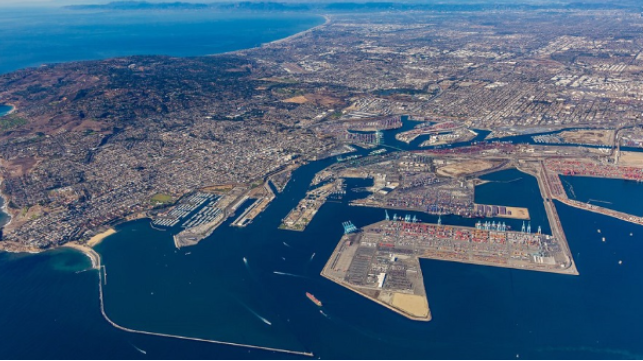Port Authorities Adopt Common Responses to Emerging Challenges

Port authorities adopt common responses to emerging challenges
Port authorities across the globe are working together to craft strategies to remain agile, adaptable and innovative in response to emerging challenges in the maritime industry. Faced with major new threats, at least 19 port authorities from Africa, Asia, Europe, Middle East, and the US have signed a new declaration on collective responses to disruption, digitalization and decarbonization.
During the 6th Port Authorities Roundtable (PAR) hosted by the Antwerp Port Authority, the group also committed to strengthen collaboration on safe crew change and cyber resilience.
PAR was initiated in 2015 to facilitate the exchange of ideas and to share best practices among leading ports with this year’s meeting being under the theme of "ports as levers for change."
“The COVID-19 pandemic has accelerated the pace of digitalization, and ports have adapted to quickly harness technology for contactless operations,” said Quah Ley Hoon, CEO of the Maritime and Port Authority of Singapore.
She added that the plight of seafarers amidst tightened border restrictions is having significant implications not only for global trade but also for their health and safety.
With COVID-19 creating far-reaching disruptions for the maritime industry, the port authorities agreed to further develop information sharing mechanisms on incidents occurring in day-to-day operations of ports. The maritime industry is grappling with an unprecedented crew change crisis due to travel bans, with about 200,000 seafarers currently affected by restrictions that prohibit them from leaving their ships.
On digitization, the coalition of PAR ports acknowledged the need for the establishment of a global and neutral platform that allows multimodal comparison of container routes. In particular, they expressed interest in exploring the potential of Routescanner to act as a transparent and neutral platform to examine container transport options.
Regarding the increasing threat of cyber security, the coalition agreed to strengthen resiliency and response through information-sharing, project collaboration and education.
On decarbonization, the coalition agreed to support global ambitions to decarbonize international shipping by 2050, support industrial scale zero emission shipping projects through national action and to deliver policy measures that will make zero emission operations viable by 2030.
“The PAR is an important platform for port authorities to come together to leverage each other’s experience and expertise to tackle these challenges. This declaration is an important step forward to push forth with digitalization and decarbonization solutions in the face of disruption,” noted Ley Hoon.
Port authorities in the PAR club include Abu Dhabi, Associated British Ports, Antwerp, Barcelona, Busan, Guangzhou, Hamburg, Klang, Kobe, Los Angeles, Long Beach, Montreal, Ningbo, Rotterdam, Santos, Seattle, Shanghai, Singapore and Tanger Med.
